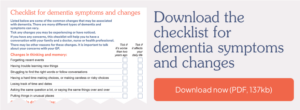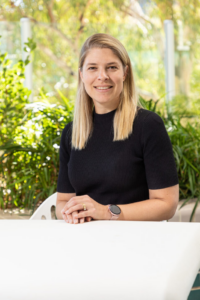
Knowing the early signs of dementia and seeking out a timely diagnosis are vital to living well in the long term according to Australian researchers who today launch a public awareness campaign ahead of Dementia Awareness Week.
In a confronting statistic, it is estimated that of the 401,300 Australians living with dementia up to 50 percent remain undiagnosed. While up to half of 23,000 people living with dementia in Adelaide remain undiagnosed.
“While we don’t yet have a cure for dementia, diagnosis is essential for people with dementia to access treatments, rehabilitation, therapies and supports, “ said Lee-Fay Low, Professor in Ageing and Health at the University of Sydney.
“Timely diagnosis, regardless of age or disease progression, allows for the person and their family to adjust, plan ahead, and make lifestyle changes now that can slow the progression of dementia and significantly improve their quality of life.”
A recent UK survey of people affected by dementia found over 90 percent saw clear benefits to getting a diagnosis. Many people living with dementia also wished they had received their diagnosis earlier but had put off getting an assessment because of denial or confusing dementia with old age.
The public awareness campaign, Face Dementia, is led by researchers from seven Australian universities and launches with a focus on Western Sydney and Adelaide today, ahead of Dementia Awareness week. The year-long campaign will include online resources, community events and awareness-raising activities working with local primary health and community organisations as well as Dementia Australia.
“We want Australians to be able to recognise early signs of dementia, and to understand the benefits of getting a timely diagnosis. The resources shared as part of the campaign can help families to start a conversation about concerns, and ask their GP for an assessment,” said Professor Lee-Fay Low.

Online resources include a checklist that will help people with concerns to identify symptoms and provides advice on how to have difficult conversations with family and talk with a GP.
The program resources were developed by leading researchers from the University of Sydney, University of Wollongong, Flinders University, Deakin University, UNSW Sydney, University of Queensland and the University of Tasmania.

“We have worked with people living with dementia, families, older people and health professionals in the design of the campaign and resources to ensure it meets their needs. In parallel we have also developed a program to support GPs and practice nurses in detecting and managing dementia,” said Professor Kate Laver of Flinders University.
Adelaide resident, Ann Pietsch, was diagnosed with younger onset dementia at the age of 59. She believes by being proactive she was able to receive a timely diagnosis.
“My diagnosis allowed me to get the help I needed, and an early diagnosis gave me time to get on with my life,” she said.
Ms Pietsch is now an advocate for Dementia Australia and dedicates her time to a wide variety of dementia related interests, including supporting those newly diagnosed and their families and carers, as well as raising awareness about what it is like to live with dementia.
Western Sydney resident, Stephen Grady, was diagnosed with younger onset dementia at the age of 60 after his wife encouraged him to see a doctor. He found that connecting with other people living with dementia helped him to adjust and better understand his diagnosis.
“I want to encourage others to be aware of the signs of dementia, be firm in advocating for yourself, and to get an early diagnosis.”
Sydney-based GP, Dr Dimity Pond, said: “Many people delay visiting a GP because they don’t want to acknowledge the changes or know if they have dementia. But a timely diagnosis provides access to treatment to slow progression and support to continue living well.”
“If you, or someone you know is experiencing changes in ability, behaviour, personality, thinking or memory, it might be dementia. If you are concerned, ask your GP for an assessment.”
“A cognitive screen can be done as part of a comprehensive annual assessment for senior Australians over 75 years. It is a good way to get a baseline, so your GP or practice nurse can monitor changes. They can also help you to improve your brain health and reduce your risk of dementia,” she said.
Visit the campaign website at: www.facedementia.au
You can follow the campaign at:
- Twitter: https://twitter.com/FaceDementiaAU
- Facebook: https://www.facebook.com/facedementiaau
Declaration: Face Dementia is funded by the Australian Government’s Medical Research Future Fund.

